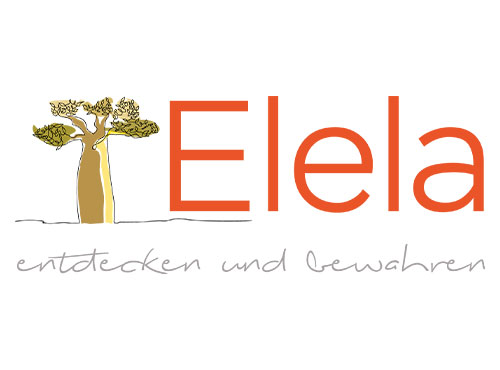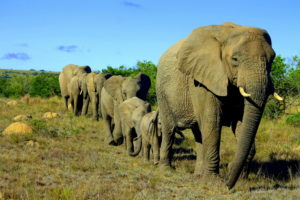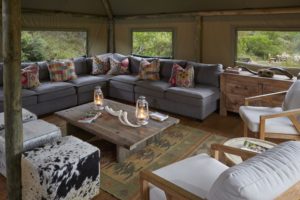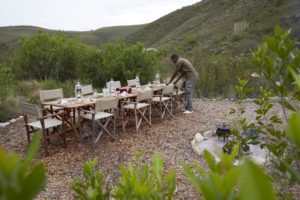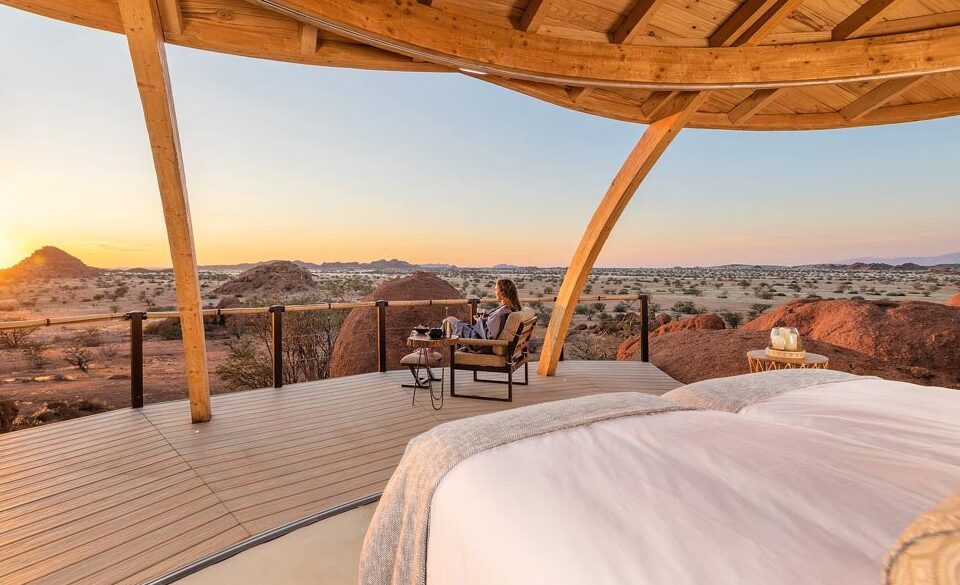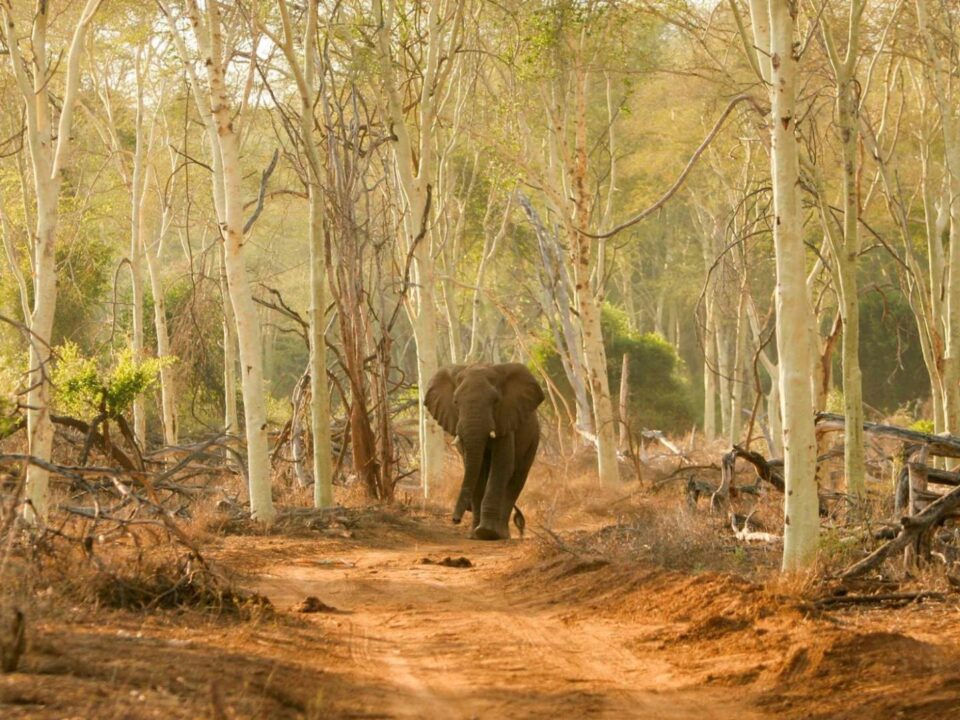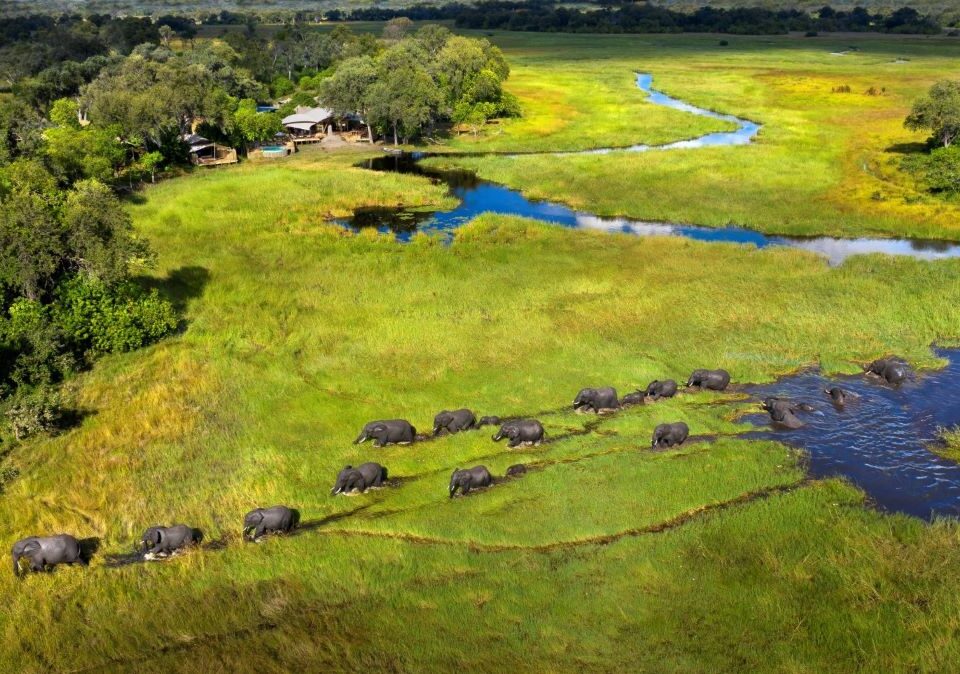
Da rauchts ja! Urlaubs-Ranger in Südafrika im Feuerwehr Einsatz
4. November 2016
Großartige Nachrichten für das Nashorn: Der Handel des Horn bleibt weiterhin illegal
11. November 2016At the beginning of this year alone, three elephant calves were born at Gondwana Game Reserve. Causing lots of excitement among the hardworking conservation team, it continues to be the perfect reward for their efforts. During an eco safari, you can be part of this excitement and join the conservation team, participating in wildlife and veld management for 4 days onwards, contributing to this important yet enriching cause.
The elephants seem to be loving life at this fynbos game reserve, which is the only one in the world of its kind where the Big 5 roam freely. This can be seen due to numerous offspring in the form of adorable elephant claves wobbling around the game reserve, warming hearts of conservationists and guests alike. For 10 years, Gondwana Game Reserve has been dedicated to reintroducing different wildlife species to the 22 000 hectares area of the reserve. Fynbos, a type of vegetation that is unique yet common for the Cape area, represents one of the challenges for the game reserve as some of the animals are not too fond of it. The black wildebeests, for example, had to be relocated to the northern part of the reserve, where the vegetation is more nutritious.
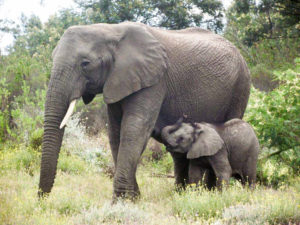
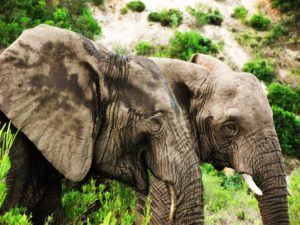
“Many times we just have to employ the ‘trial and error’ approach,” says Brandon, the manager and game ranger of the eco camps. “There are no books about conservation in the fynbos area. Therefore, we have to work carefully.” This means employing different kinds of methods, one of which is the so-called ‘slow release’. According to this method, new animals will first stay in the boma (holding enclosure) in order to adjust to the new environment, before being released into the game reserve and being able to roam freely.
Elephants are very sensible as well as social animals. Their surroundings are very important as they affect them, and it usually becomes obvious if elephants do not feel too homey in a certain part of a reserve. Fully-grown elephants consume about 200 to 300 kg of different vegetation daily, while their favourite is rich-in-nutrients tree bark.
The ladies are in charge of the herd and form a social group, in which the dominant elephant cow leads the herd. Sometimes different families form a herd. The adult males only join the herd for breeding and leave the herd subsequently. Afterwards, the males usually stroll through the reserve alone. At Gondwana Game Reserve you will encounter these lonesome but gentle giants.
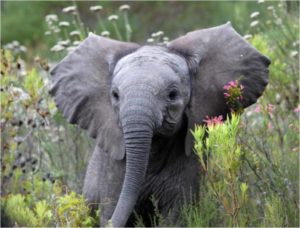
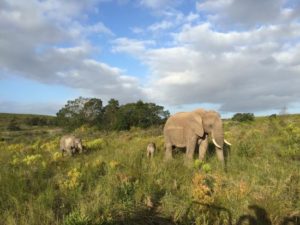
The youngsters are under the constant protection of the family. During the first weeks of their lives, one has a hard time spotting them as they like to hide between the back legs or under the belly of their mother. But after a couple weeks, the mothers will introduce the little ones to their surroundings and one can observe them frolicking through the game reserve. Poaching represents a severe problem in many parts of Africa and continues to endanger the gentle giants, making the work of private game reserves vital in the fight to preserve this endangered species.
Explore the life of a game ranger with your safari in South Africa
As a guest at the eco safari camp one can gain valuable insights into conservation work, and most importantly gain hands-on experience. Through volunteering, you will contribute to the preservation of endangered species. “We want to create a sustainable safari experience for nature and wildlife lovers of all ages and invite our guests to take a deeper look into our daily conservation work, with no shortage of fun,” explains Brandon.
This means that as an eco ranger, you will get to peek behind the scenes of an authentic Big 5 game reserve. First thing in the morning, the exciting search for wildlife begins. Next, important data needs to be captured for the management of the reserve: how big are the herds? What are the eating and social behaviour like in the reserve? Which type of birds is the game reserve inhabited by? All while standing the chance of encountering giraffes, zebras, lions or elephants. The survival training rounds off the eco safari. Reading animal tracks, orienting in the bush using a compass or GPS, are just some of the bush skills you will acquire.
Of course multiple game drives are included in your eco safari, giving you the perfect chance to discover the game reserve and to capture these special memories with your camera.
After getting your hands dirty or a day filled with game drives, kick back and relax at the pool or in your thoughtfully furnished safari tent. Gather around the fire for a cozy evening, where you will get the chance to exchange with the other guests, revive memories of the day and will get pampered by our chef with traditional South African dishes.
The eco safari does not only represent the chance to encounter the animals of one of the Western Cape’s biggest Big 5 game reserve, but also to contribute to the preservation of these majestic creatures.

